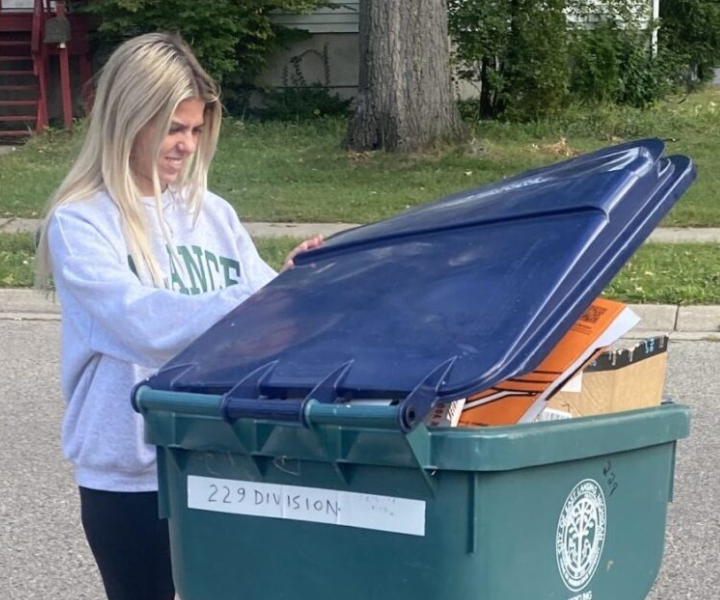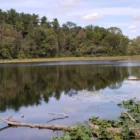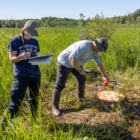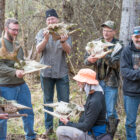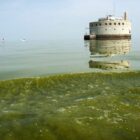EAST LANSING, Mich.—The East Lansing Parks, Recreation and Arts Environmental Stewardship Program has been up and running for almost 15 years. Art festivals and initiatives coordinator Heather Majano has been with the program for about 11 years and has seen firsthand the positive impacts the once-a-month volunteer Stewardship Program has on the community and park ecosystems.
“There’s a couple goals for the Stewardship Program, one is getting information into the community,” Majano said. “And then the other goal is to restore the park to a more native plant life.”
Majano has seen both of those goals come to fruition over the years. A lot of work has been done in Henry Fine Park, and while there has been a decent amount of buckthorn sprouts in the park, according to Majano, the park has been improving.
Many volunteers have also brought what they see out in the field back to their own homes.
“I see a lot of returning volunteers and they always tell me, ‘Oh, I didn’t realize this was an invasive plant,” Majano said. Buckthorn as an invasive plant species has a distinct advantage because it grows earlier than most, leading to issues with plant diversity which has caused concern that has now turned into action with the volunteer project.


